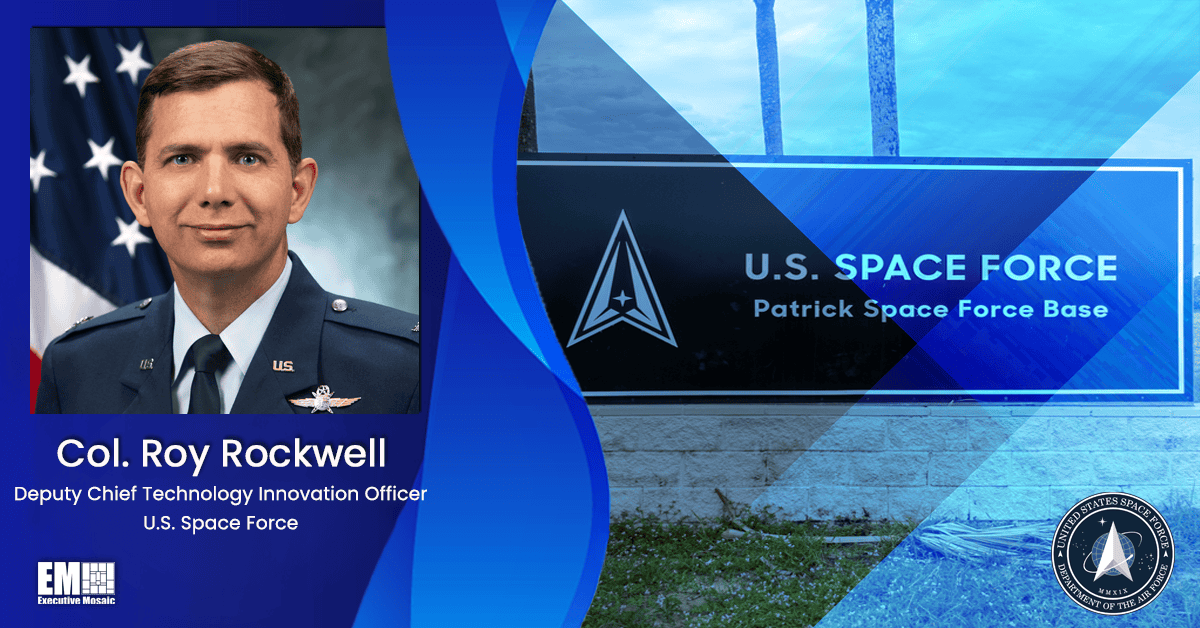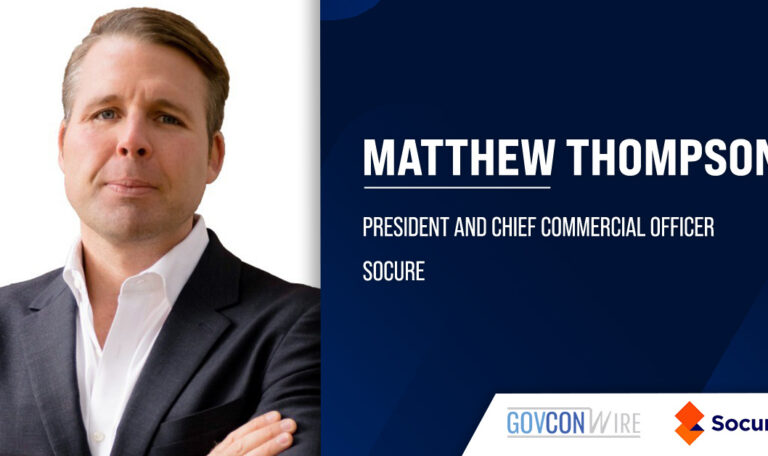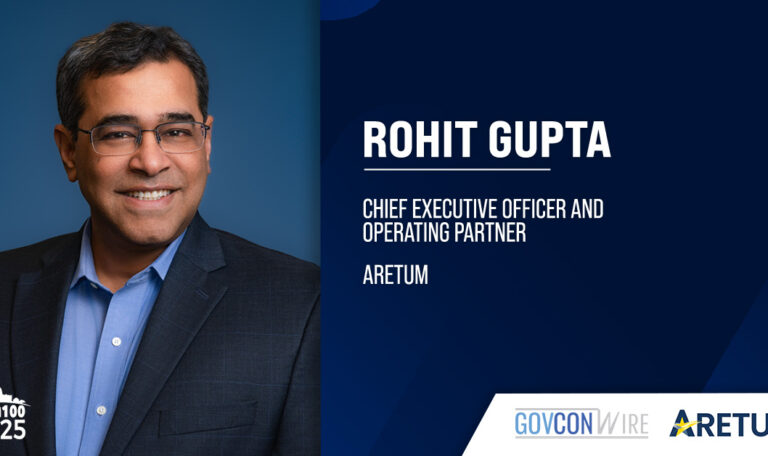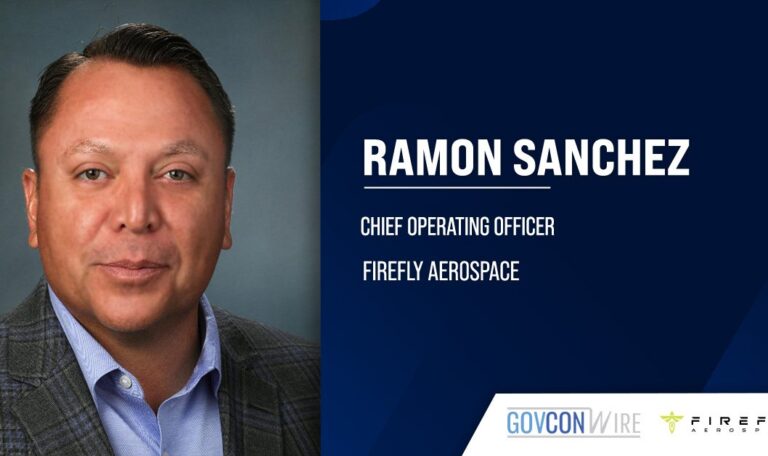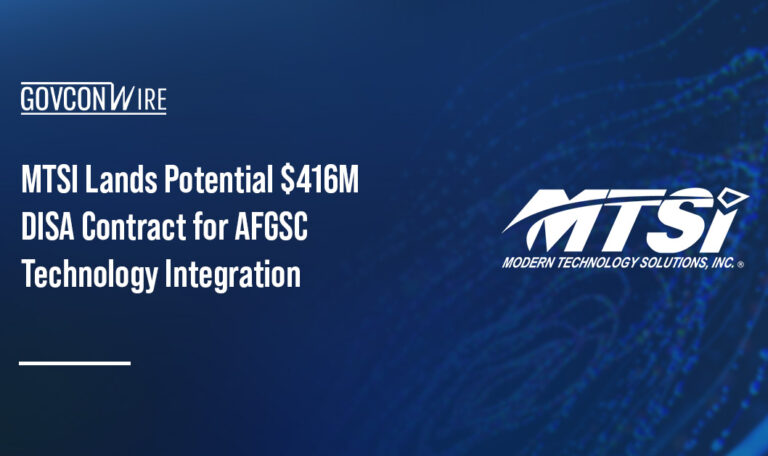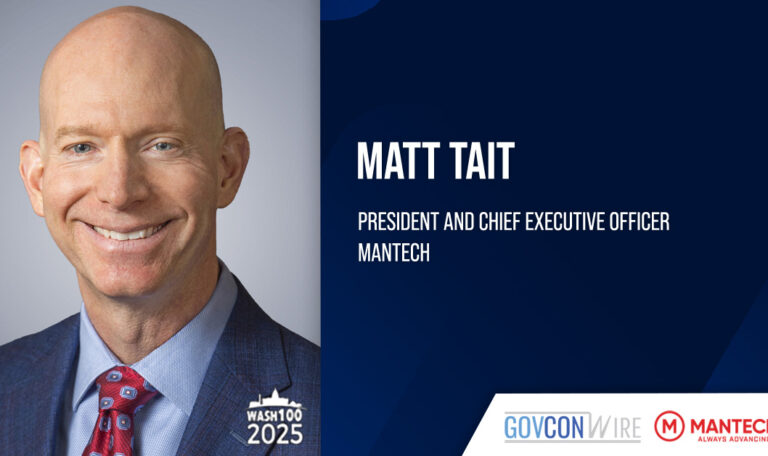As both the U.S. and its adversaries ramp up space operations, digital modernization is crucial to ensuring that the nation has the capabilities necessary to maintain its position in the growing domain, according to Colonel Roy Rockwell, deputy chief technology innovation officer for the Space Force.
In the complex space environment where operations rely heavily on data, the Space Force must upgrade its technology to drive mission success within space and across all connected domains, Rockwell emphasized during his keynote address at GovCon Wire’s 2023 DOD: Digital Modernization Forum.
“Being a digital service is an imperative to our success. Digital understanding or fluency must be infused into all aspects of our service, not only so we can better align the global multi-domain and digitally informed nature of what we do and how we do it, but also to give us the agility needed to proactively address the growing threats we face,” Rockwell stated.
To move away from legacy systems and attain the full range of benefits that come with digital technology, the Space Force has identified three key priorities.
Building a streamlined integrated operations mission network with requisite network data connectivity is the first step, Rockwell said.
“Our space data networks must be bandwidth rich, secure at all levels and reliable throughout the spectrum of conflict,” he emphasized.
To give warfighters decision superiority, Rockwell strives to generate asymmetric effects, which he defines as advantageous impacts of U.S. influence on adversary decision-making.
Further in the future, Rockwell aims to establish Space First, a metaverse ecosystem of multiple technology stacks connected to open standards integration intended to allow interoperable tests, trading and opposite requirements.
Rockwell anticipates that the platform will grow to be capable of supporting artificial intelligence and visualization layers to aid the integration of all mission functions across the Space Force.
Once the full technological foundation has been implemented, the Space Force will be able to harness the benefits of tools such as model-based systems, digital twins and real-time ranges, Rockwell said.
“Hopefully the seeds we are planting right now will give us the ability to be a modernized digital capability. I know our priorities and our vision are laid out appropriately to the pathway for it,” said Rockwell.
“Now it is just a matter of pulling everything together,” he added.
Tied to the plan’s success are partnerships. Rockwell is eyeing opportunities to collaborate with space-focused private sector organizations to incorporate novel technologies into the Space Force’s digital infrastructure.
Policy is another major factor woven into digital modernization within the Space Force. Many current policies regarding technology were established decades ago as physical architectures were being put into place, and must be modified so that the force can fully access the advantages of modern technologies, Rockwell said.
“Our digital modernization efforts represent the most significant commitment to digital transformation of any government entity,” Rockwell said.
“The Space Force is a small, specialized service, but our domain is large, with an expansive mission that is inherently more bound to and driven by technology and digital transformation than most of our other mission sets,” he stated.
To hear Rockwell’s full address and register for future events, visit GovCon Wire’s events page.


